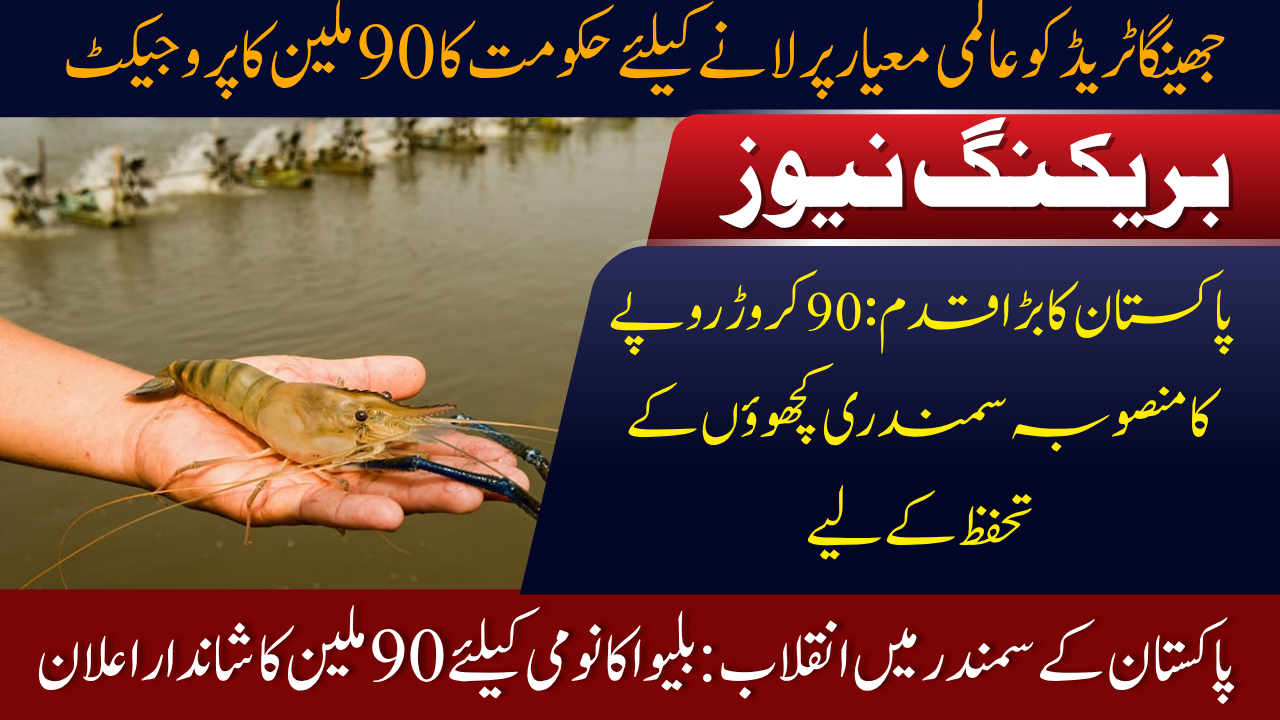Protect Turtles and Boost Shrimp Trade
In a landmark move for environmental conservation and sustainable trade, the Government of Pakistan has launched a Rs. 90 million project aimed at protecting endangered sea turtles while boosting the country’s shrimp exports. The initiative, led by the Ministry of Maritime Affairs in collaboration with the Fisheries Department, reflects Pakistan’s commitment to balancing ecological preservation with economic growth.
A Step Toward Marine Conservation
Pakistan’s coastal belt, stretching along Sindh and Balochistan, is home to globally endangered turtle species such as the green turtle and olive ridley. However, over the years, habitat destruction, unregulated fishing practices, and climate change have severely threatened their survival.
The newly launched project aims to establish modern turtle protection zones, awareness campaigns for fishermen, and advanced monitoring systems to reduce accidental turtle deaths during shrimp trawling.
Boosting Shrimp Trade with Sustainable Practices
Shrimp exports contribute significantly to Pakistan’s seafood trade, but international buyers have increasingly raised concerns about the environmental impacts of local fishing practices. Some importing countries have strict requirements for turtle-safe fishing methods, and failure to comply could affect Pakistan’s shrimp market access.
This Rs. 90 million project focuses on implementing Turtle Excluder Devices (TEDs) in shrimp trawlers, which allow shrimp to be caught while giving turtles a safe escape route. By adopting these sustainable practices, Pakistan hopes to enhance its credibility in the global seafood market and increase shrimp trade revenues.
📊 Quick Details of the Project
| Feature/Highlight | Details |
|---|---|
| Total Project Cost | Rs. 90 million |
| Main Objective | Protect turtles & boost shrimp trade |
| Target Species | Green turtle, Olive ridley |
| Key Intervention | Turtle Excluder Devices (TEDs) in trawlers |
| Lead Authority | Ministry of Maritime Affairs |
| Collaboration | Fisheries Department & NGOs |
| Expected Benefit | Higher shrimp exports, global compliance, marine conservation |
Training and Awareness for Fishermen
The project also allocates funds for training fishermen in eco-friendly fishing techniques. Workshops will be conducted in Karachi, Gwadar, and Pasni to educate local fishing communities about the importance of turtle conservation and how compliance with global standards can secure long-term economic benefits.
This is a win-win scenario where fishermen can maintain livelihoods while protecting marine biodiversity.
International Recognition and Trade Advantage
Countries such as the United States and members of the European Union have strict import rules requiring shrimp to be caught with turtle-friendly methods. By aligning with these standards, Pakistan can avoid trade restrictions and strengthen its position in the lucrative seafood export market.
Officials believe that successful implementation of this project could help Pakistan access new markets and potentially increase shrimp export revenues by 15–20% annually.
Broader Impact on Pakistan’s Blue Economy
This initiative is part of Pakistan’s broader Blue Economy strategy, which focuses on sustainable utilization of marine resources. Protecting biodiversity, improving fisheries management, and introducing technology-driven practices are seen as key pillars for long-term economic stability.
By combining conservation with trade opportunities, the government is setting a precedent for future projects that integrate ecology with business.
Conclusion
The Rs. 90 million turtle protection and shrimp trade project is a forward-looking step that highlights Pakistan’s commitment to marine sustainability and economic growth. By safeguarding endangered turtle species and promoting sustainable shrimp fishing, the government is not only protecting biodiversity but also strengthening its global seafood trade reputation.
